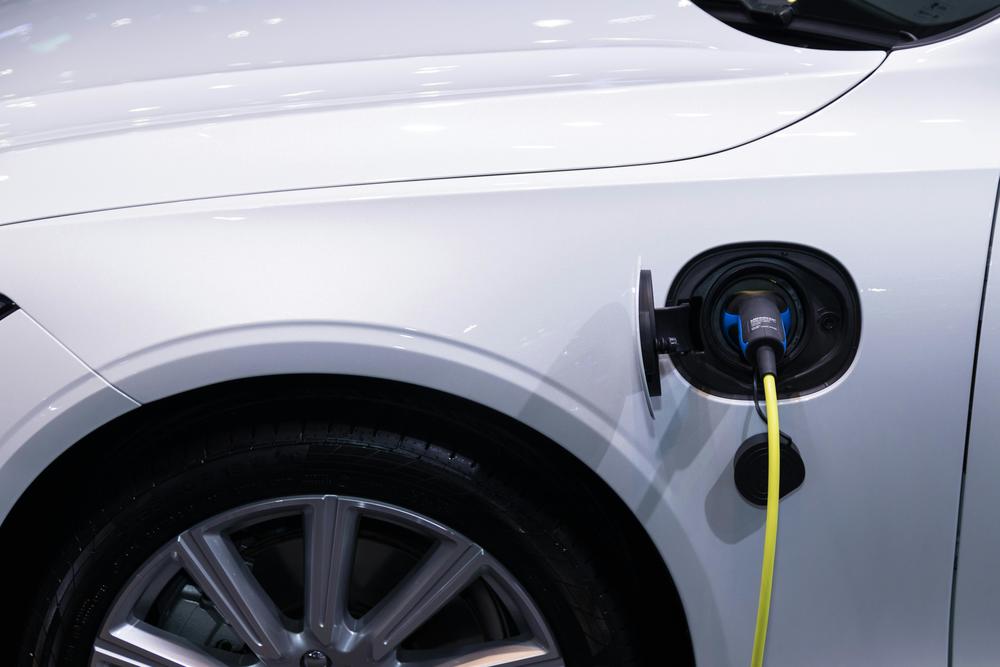
Caption
Sens. Warnock and Ossoff announced they are delivering Federal funding to build more EV chargers throughout Georgia.
Credit: Pexels

Sens. Warnock and Ossoff announced they are delivering Federal funding to build more EV chargers throughout Georgia.
Note: In this recurring digital news series, GPB follows your federal tax dollars back to the state of Georgia each week. Neither Sen. Jon Ossoff nor Sen. Raphael Warnock is up for reelection this year — the former will run again in 2026 and the latter in 2028.
For the week ending Aug. 30, the senators worked on securing funding to build more EV chargers in Georgia, deliver funding to help nonprofit organizations secure housing for veterans, prevent homelessness, and protect Georgia motorcyclists on the road.
On Aug. 26, Sens. Ossoff and Warnock joined Congressman Sanford D. Bishop, Jr. (GA-02) and Congresswoman Nikema Williams (GA-05) to deliver Federal funding under the bipartisan infrastructure law’s Charging and Fueling Infrastructure Discretionary Grant Program, building more EV chargers for Georgia EV owners.
The senators are delivering $15 million to the Middle Georgia Regional Commission, per a press release, “which plans to install over 200 publicly available EV chargers across Middle Georgia” in the cities of:
|
Milledgeville |
Culloden |
|
Macon |
Juliette |
|
Lizella |
Forsyth |
|
Roberta |
Byron |
|
Warner Robins |
Fort Valley |
|
Perry |
Hawkinsville |
|
Bonaire |
Eatonton |
|
Centerville |
Jeffersonville |
| Hawkinsville |
Allentown |
| Kathleen |
Irwinton |
| Perry |
Toomsboro |
| Gray | Gordon |
Ossoff, Warnock, and Rep. Williams are also delivering $11.8 million to Hartsfield-Jackson Atlanta International Airport for the following: Installing a DC Fast Charging Hub for rental car companies; ride-share drivers; airport shuttles for hotels; employees; the City of Atlanta’s growing EV light to heavy-duty fleets; and regional and local EV drivers coming to the airport or driving along the nearby major highway systems.
On Aug. 27, Ossoff and Warnock announced they are delivering $31 million in Federal funding under the Department of Veterans Affairs (VA) Supportive Services for Veteran Families program to Georgia nonprofit organizations that help veterans find housing and prevent homelessness.
Per a press release, the Federal VA program:
The senators are delivering Federal funding to the following organizations:
| Changing Homelessness, Inc. | $15,604,329 |
| Central Savannah River Area Economic Opportunity Authority, Inc. (CSRA EOA) | $1,864,282 |
| Volunteers of America Southeast, Inc. | $2,098,333 |
| Travelers Aid of Metro Atlanta, Inc. | $6,148,181 |
| Project Community Connections, Inc. | $2,230,109 |
| Volunteer Behavioral Health Care System | $3,334,225 |
On Aug. 28, Ossoff announced he is launching an inquiry with the National Highway Traffic Safety Administration (NHTSA) to ensure the proper and safe testing of motorcycle automatic braking requirements.
According to a press release, "NHTSA recently mandated new Automatic Emergency Braking (AEB) technology in all light vehicles by 2029; however, NHTSA acknowledged they do not have data on how these systems interact with motorcycles."
Since June 2023, NHTSA has been researching the effect of AEB systems on motorcycles.
Ossoff is requesting an update on the research to protect motorcyclists since the Georgia Department of Driver Services reports that in 2019, motorcycles represented about 2% of registered vehicles in Georgia. Still, motorcyclists made up 11% of traffic fatalities and 21% of driver fatalities.
"NHTSA must ensure new technologies are regulated in a way that protects all drivers, especially those at higher risk of serious injury or death," Ossoff wrote in the inquiry. "As drivers become more reliant on automated technology, it is crucial that NHTSA researches the technologies' effect on motorcyclists and incorporates this research into future rulemakings."